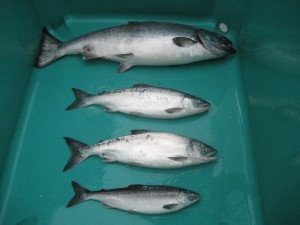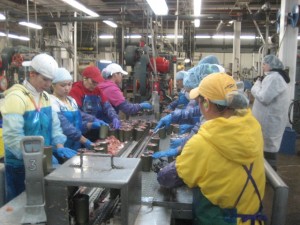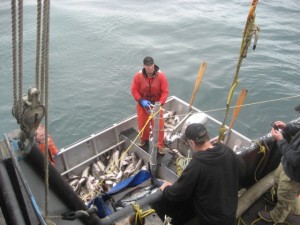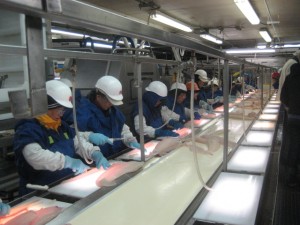Predictions: national nutrition issues for 2011
My first San Francisco Chronicle “Food Matters” column for the new year deals with some predictions:
Q: Whatever you used as a crystal ball last year turned out to be a pretty good predictor of the most prominent food issues of 2010. How about trying again: What food matters will we be hearing about in 2011?
A: It doesn’t take a crystal ball to figure out what’s coming up with food issues. I’m happy to make predictions, especially since most seem fairly safe.
Dietary guidelines will be released this month. By law, they were due last year and are already late. What will they say? The 2010 guidelines advisory committee recommended eating more fruits, vegetables and whole grains, but introduced a new euphemism – SOFAs, or Solid Fats and Added Sugars – for the “eat less” advice. SOFAs really mean “cut down on fatty meat and dairy products” and “avoid sugary sodas.”
Will government agencies have the nerve to say so? Let’s hope.
The U.S. Department of Agriculture will issue a new food guide. The 2005 pyramid’s rainbow stripes proved impossible to teach and useless to anyone without a computer. I’ve heard a rumor that I will love the new design. I’m skeptical. I liked the original 1992 pyramid. It showed that bottom-of-the-pyramid foods were healthiest, making it unpopular with companies selling top-of-the-pyramid products. But it is healthier to eat some foods than others (see: dietary guidelines).
Will the USDA improve on the 1992 design? We will soon find out.
The fights over food safety will continue. At the last possible moment, Congress passed the food safety bill by a large majority. Now the fights really begin.
Funding will be most contentious, with the actual regulations not far behind. The Congressional Budget Office absurdly considered the bill’s provisions to be “budget neutral.” They are anything but.
The bill’s provisions require the Food and Drug Administration to hire more inspectors just at a time when Republican lawmakers have sworn to cut domestic spending. The FDA also must translate the bill’s requirements and exemptions for small farmers into regulations.
Rule-making is a lengthy process subject to public comment and, therefore, political maneuvering. Watch the lobbying efforts ratchet up as food producers, large and small, attempt to head off safety rules they think they won’t like.
Expect more lawsuits over the scientific basis of health claims. The Federal Trade Commission just settled a $21 million claim against Dannon for advertising that yogurt protects against the flu. The agency also has gone after scientifically unsubstantiated claims that omega-3s in kiddie supplements promote brain development and that pomegranate juice protects against prostate problems. POM Wonderful has already countersued the FTC on grounds that the First Amendment protects commercial speech. I’ll be watching this case carefully.
The FDA will issue new front-of-package label regulations. The FDA has promised to propose an at-a-glance symbol to indicate the overall nutritional value of food products. Food companies like the Guideline Daily Amount spots they are using in the upper corners of food packages because the symbols are factual but nonjudgmental. The FDA, however, is considering red, yellow and green traffic-light symbols that do convey judgments. Food companies say they will not voluntarily use a symbol that tells people to eat less of their products.
Will the FDA have the courage to make traffic lights mandatory? It will need courage. The new British government dealt with the traffic-light idea by summarily dismantling the food agency that suggested it.
Corporations will seek new ways to co-opt critics. Under the guise of corporate social responsibility, food companies have been making large donations to organizations that might otherwise criticize their products. The most recent example is the decision by Save the Children, formerly a staunch advocate of soda taxes, to drop that cause coincidentally at a time when its executives were negotiating funding from Coca-Cola.
Such strategies remind me of how the Philip Morris cigarette company distributed grants to leading arts groups. Expect food companies to use generosity to neutralize critics and buy silence.
School meals will make front-page news. Congress passed the Healthy, Hunger-Free Kids Act last month. Now the USDA must implement it by setting nutrition standards, adding fresh fruits and vegetables (some locally grown) and expanding eligibility.
President Obama has promised to restore the $4.5 billion “borrowed” from the SNAP (food stamp) program to fund this act. The scrambling over the regulations and financing should make excellent spectator sport.
Farm bill advocates will be mobilizing. You might think it too early to be worrying about the 2012 Farm Bill, but I’ve already gotten position papers analyzing commodity and food-assistance issues from groups gearing up to lobby Congress to bring agricultural policy in line with nutrition and public health policy.
I have a personal interest in such papers. I will be teaching a course on the Farm Bill at New York University next fall. Please get busy and write more of them!
Happy new year, and let’s see how my guesses play out.







